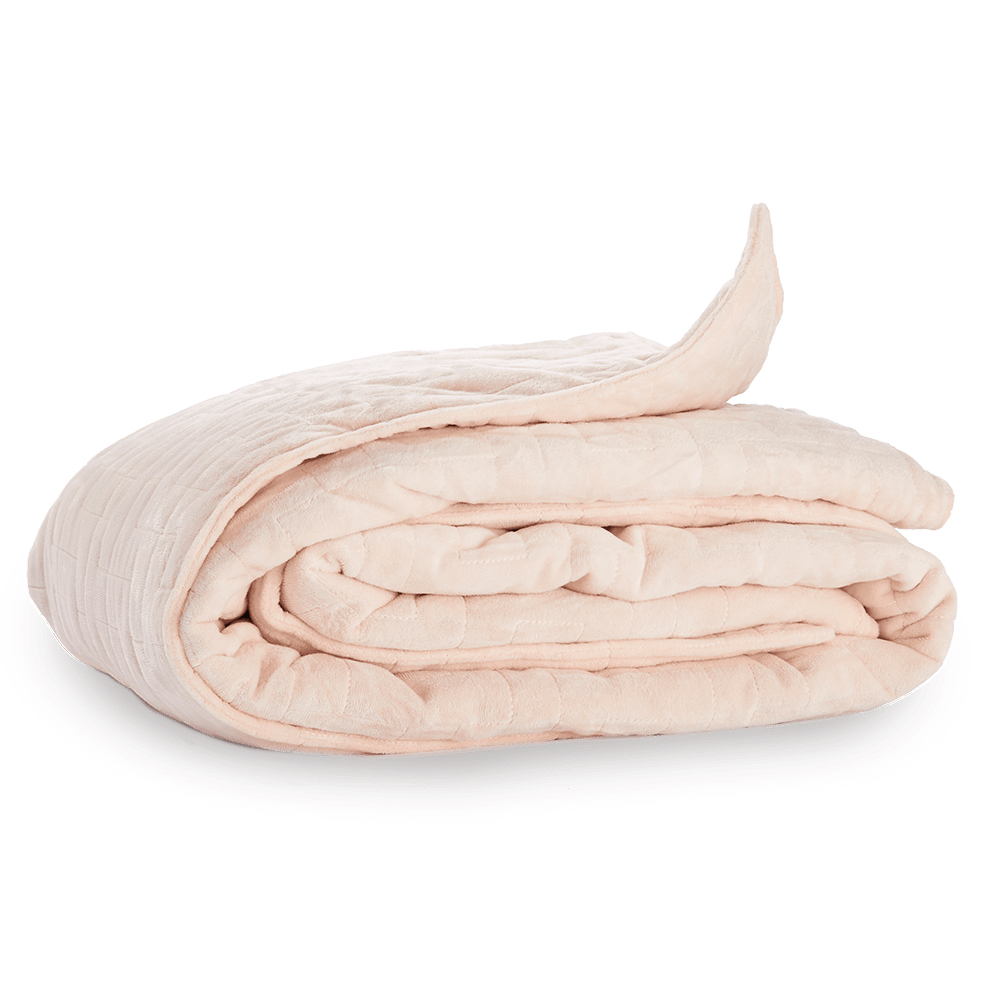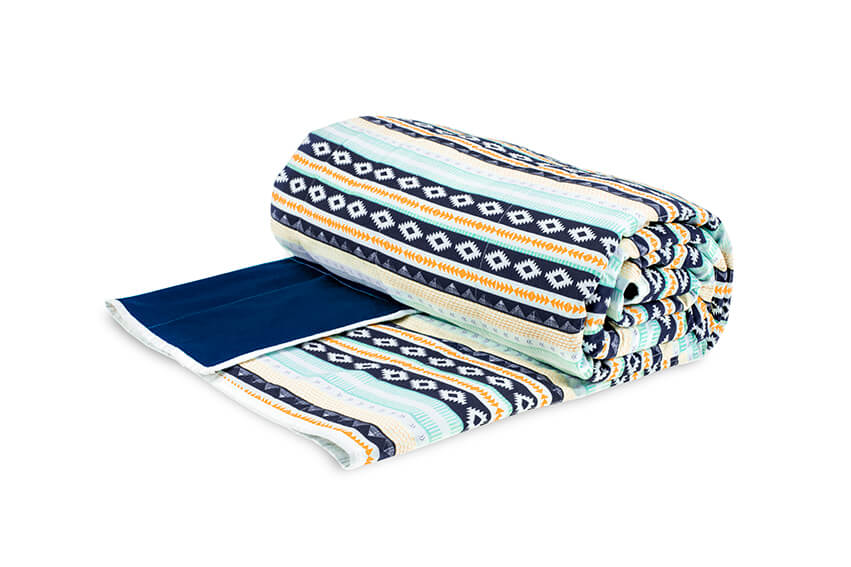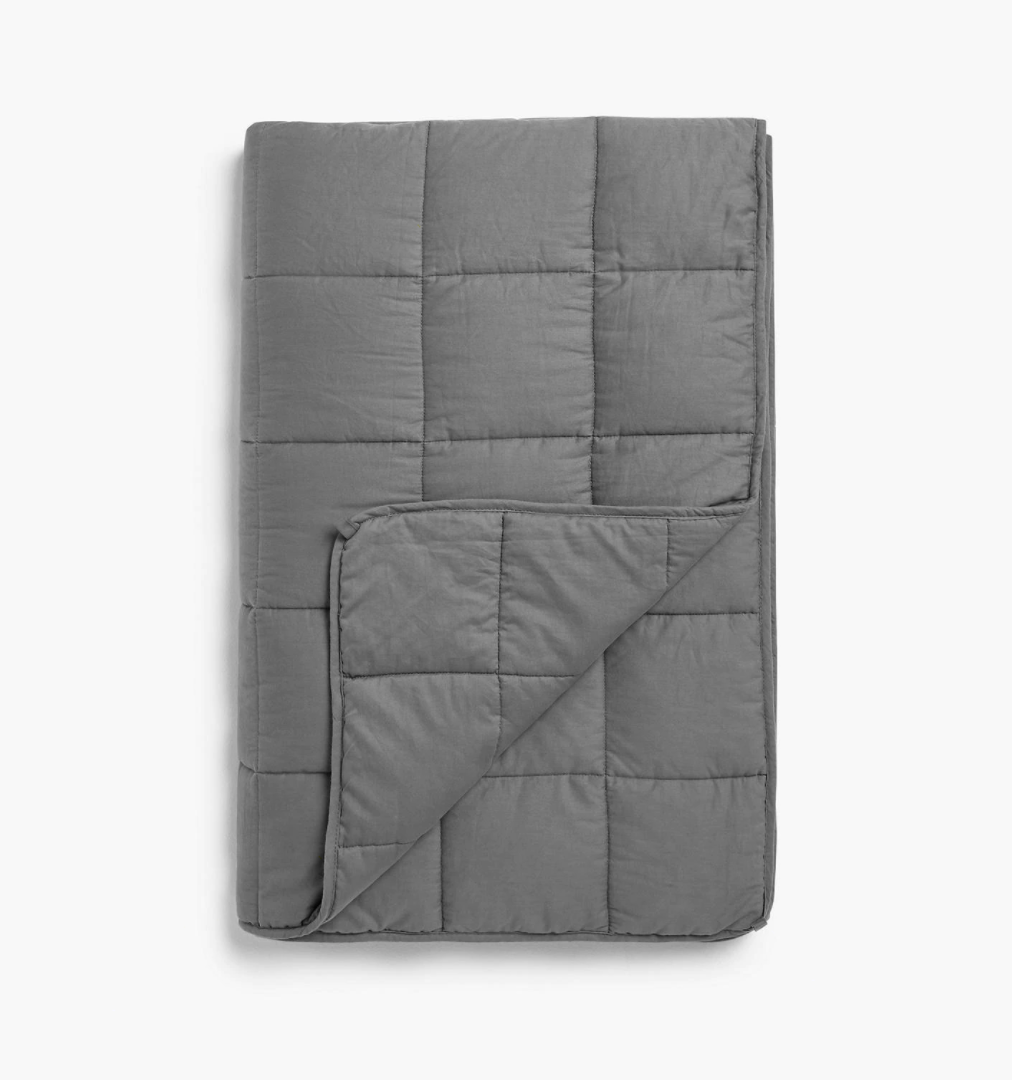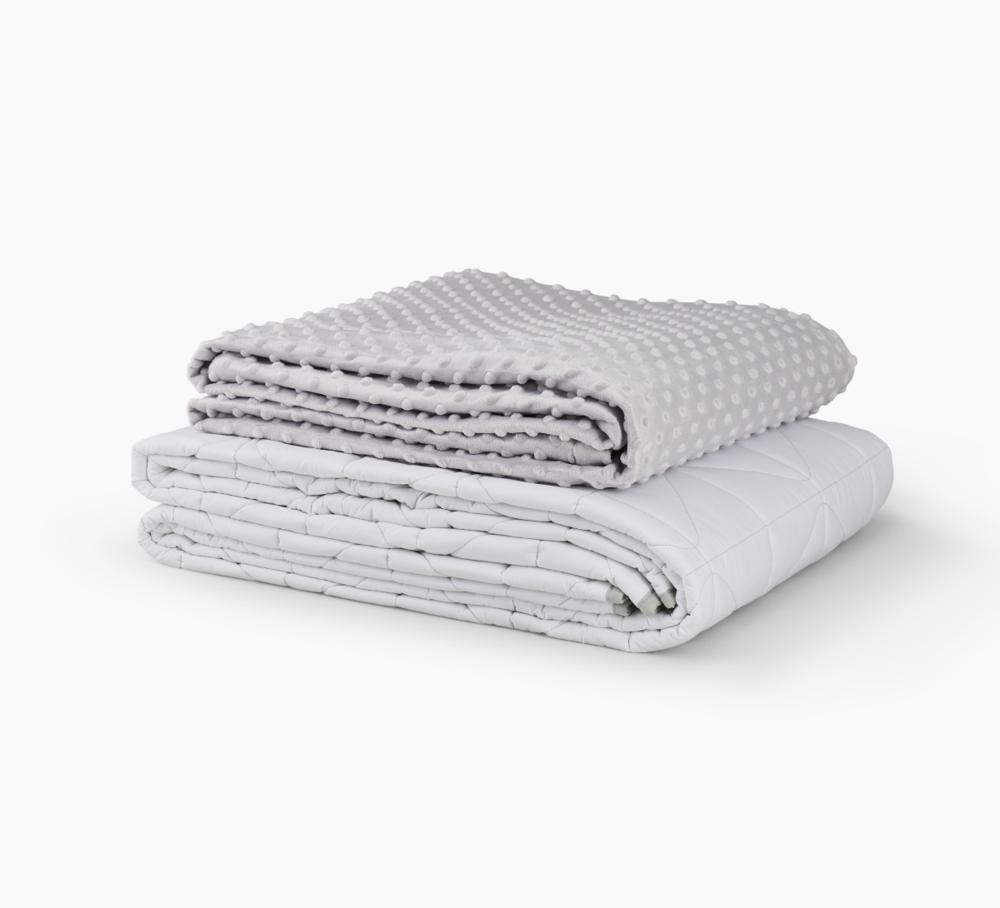Weighted blankets are said to help people with anxiety, insomnia, ADHD and more. But how do they actually work, and what do they feel like? Here’s everything you need to know before you invest in one of your own.
In a world where so many of us deal with anxiety and struggle with our sleep, it’s no surprise that weighted blankets have become a staple in many of our routines.
Over the last couple of years the weighted blanket has made a name for itself online for its ability to help people dealing with a whole host of different issues, including insomnia, anxiety and ADHD.
If you’ve yet to invest in a weighted blanket, you’re probably wondering what all the fuss is about. After all, they’re more or less what they say on the tin: blankets filled with small, weighted objects (usually glass beads) that exert pressure on the user when they lie underneath it. But still, despite their simplicity, weighted blankets are revered for being able to help sleep and calm anxiety.
As with all wellness trends, it’s important to work out whether a weighted blanket is right for you before you invest in one – and that’s why we’ve put together this handy guide to give you answers to some of the most frequently asked questions.
From whether they actually work to how it feels to use one, here’s Stylist’s guide to everything you need to know about weighted blankets.
What is a weighted blanket and how does it work?
A weighted blanket is pretty much what it sounds like – a heavy blanket for your bed.
Filled with plastic pellets or glass beads, they tend to weigh around 15 pounds or more, though different brands offer various different weights and sizes.
Experts typically recommend that your blanket should weigh 10-15% of your body weight, but within this range, choosing how heavy your blanket is comes down to personal preference – some prefer a lighter blanket, while others want something a bit more substantial.
And they work, apparently, through something called Deep Touch Pressure (DTP). Many weighted blanket fans say that this process helps release serotonin, a neurotransmitter linked to emotional regulation – which could explain the feelings of calmness and serenity many users report after using them.
What can weighted blankets help with?
Weighted blankets have been promoted by sufferers of many conditions as a way of helping them manage their health.
One of the most prominent conditions here is anxiety, which weighted blankets are said to help with. One 2008 study found that those using weighted blanket had lower anxiety, lower blood pressure and pulse rate and experienced significant “positive calming effects”.
As you might expect, this can also have a positive effect on sleep – many users report longer sleep time and better sleep quality, too.
Other research points to its efficacy with other conditions, too. Weighted vests have already been proven to be useful for concentration in those with ADHD – and weighted blankets could have a similar effect.
What do weighted blankets feel like?
I tried out Calming Blanket’s Adult Weighted Blanket in quartz (£149). Calming Blanket’s offering may be on the pricier side of the spectrum (you can also find a weighted blanket from Silentnight for £65), but the luxury feel of the quartz covering makes using the blanket feel like a treat.
Experts suggest you get a weighted blanket that is 10-15% of your body weight, and the Calming Blanket website has a guide to match your weight to the type of blanket you need. Mine was the 6.8kg blanket.
As someone who deals with anxiety, I was excited to try a weighted blanket after having read a lot about how they are supposed to relieve feelings of panic and unrest and help you feel more calm and secure, so I was excited to try mine out.
Although I was sceptical about the blanket when I first tried it out (mainly because it wasn’t as heavy as I expected to be) after a couple of minutes you really start to notice the light pressure of the blanket all over your body, especially on your legs. As I’m not someone who needs to use the blanket to aid my sleep, I’ve actually really enjoyed using it on the sofa during the evening – a time when I tend to feel most anxious – because the cosy pressure of the blanket on my legs helps me to feel more secure and relaxed.
Now, after using it for just over week, I’ve come to associate the blanket with feelings of relaxation and security, so it’s great to have it around for whenever I’m feeling on edge.
Stylist’s digital fitness writer Chloe Gray also gave the new range from John Lewis a try for Stylist Loves.
“The blanket’s weight spreads around the mattress beneath you, so rather than feeling weighed down, I felt weightless,” she said. “On the first night, I slept so contently I woke up 45 minutes late, and I’ve now used it every night for the last fortnight.”
How much do weighted blankets cost?
As you might expect, prices for weighted blankets vary across brand and depending on their weight and composition – you might also pay more for a luxury covering or softer material.
Choosing the right blanket for you is really up to personal preference – but the options below are a good place to start.
Calming Blanket / £149
6.8kg Adult Weighted Blanket
Silentnight / £65
6.8kg Weighted Blanket
Gravity Blanket / £149
6kg Gravity Blanket
Senso Rex / £119
8kg Weighted Blanket
John Lewis & Partners / £90
7kg Specialist Synthetic Weighted Blanket
Mela / £199.99
7kg Weighted Blanket and Cover
Images: Getty/Courtesy of Suppliers
Source: Read Full Article









